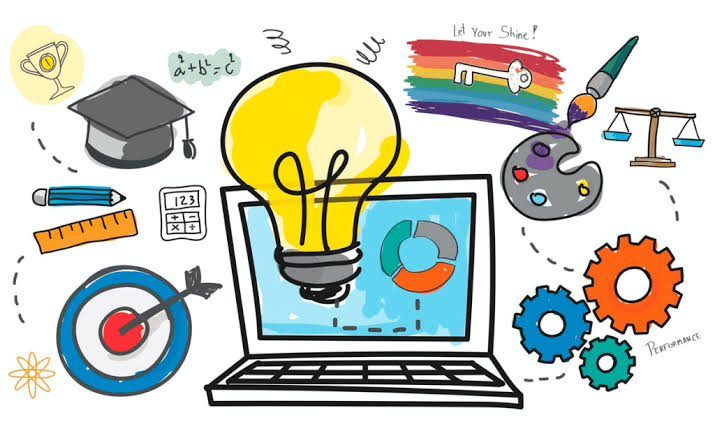Your 20s are often called the “defining decade.” It’s the period when you’re transitioning from student life into the realities of work, money, and independence. The habits and skills you build during this time can set the tone for the rest of your life; either pushing you ahead or holding you back.
While there’s no single roadmap to success, certain skills stand out as essential, no matter what field you’re in. From building financial stability to mastering communication, these are the core abilities you should focus on developing in your early 20s.
Communication and Public Speaking
Strong communication is the foundation of every opportunity. Whether you’re pitching an idea, writing emails, or speaking in front of a group, your ability to express yourself clearly can determine how far you go. Public speaking in particular is a skill many shy away from, but it’s one that builds confidence and credibility.
Take for example; Chimamanda Ngozi Adichie began speaking publicly about African stories in her 20s. Her TED Talk, The Danger of a Single Story, turned her into a global voice. Her ability to communicate ideas clearly helped her build a career that goes beyond books.
How to learn it:
- Join a debate or public speaking club.
- Practice storytelling with friends or on social media.
- Record yourself and watch for areas to improve.
Networking and Relationship-Building
In your 20s, you’re building your first serious professional connections. The truth is, opportunities often come not just from what you know, but who knows you. Building relationships early and keeping them genuine can pay off years later.
How to learn it:
- Attend industry events and talk to people beyond your circle.
- Reach out to mentors on LinkedIn.
- Follow up consistently without being pushy.
Digital Literacy and Tech Skills
Technology drives every career today. Even if you’re not a “tech person,” knowing how to use digital tools effectively makes you more employable. From spreadsheets and presentations to AI-powered apps, digital literacy is no longer optional.
Let’s take a look at Iyin Aboyeji; he co-founded Andela and Flutterwave in his 20s. His ability to merge tech knowledge with entrepreneurship positioned him as a leader in Africa’s digital economy.
High-value areas to explore:
- Basic coding or web design.
- Data analysis and visualization.
- Mastering workplace tools like Notion, Google Workspace, and AI tools.
Financial Management
Money mistakes in your 20s can linger for years. Learning to budget, save, invest, and understand credit early helps you avoid financial stress later. Think of money as a tool, not just something to spend.
How to learn it:
- Read beginner-friendly books on personal finance.
- Start with small, consistent investments rather than waiting until you “earn more.”
Emotional Intelligence (EQ)
Your IQ might get you a job, but your EQ determines how well you work with others. Emotional intelligence — understanding your emotions and those of others is key to leadership, teamwork, and personal relationships.
How to learn it:
- Practice active listening.
- Learn to pause before reacting in conflict.
- Reflect on your own behaviour through journaling or feedback.
Sales and Persuasion
Life is sales. You’ll need to sell yourself in interviews, convince a manager of your ideas, or even persuade clients to trust your work. The art of persuasion is a high-income skill that opens endless doors.
How to learn it:
- Study copywriting (it’s persuasion in writing).
- Role-play sales scenarios with friends.
- Read books on negotiation and influence.
Time and Self-Management
Your 20s come with newfound freedom and distractions. The ability to manage your time, set priorities, and stay disciplined separates achievers from drifters.
How to learn it:
- Use time-blocking to structure your day.
- Learn to say no when it doesn’t align with your goals.
- Start with small, consistent habits instead of unrealistic routines.
Creative Thinking and Problem-Solving
The best opportunities often come from solving problems others overlook. Creative thinking isn’t about being “artsy” it’s about approaching challenges with fresh ideas and flexibility.
How to learn it:
- Ask “why” and “what if” questions often.
- Expose yourself to different industries and cultures.
- Practice brainstorming without judging ideas too quickly.
Adaptability and Learning How to Learn
Change is the only constant. Industries evolve, technology shifts, and careers pivot. What matters most is not the skill itself, but how quickly you can learn new ones.
How to learn it:
- Take online courses regularly.
- Challenge yourself with projects outside your comfort zone.
- Stay curious; read widely, not just in your field.
Personal Branding and Storytelling
We live in a world where everyone’s a creator. How you present yourself online through LinkedIn, portfolios, or even social media, shapes how people perceive you. Personal branding and storytelling help you stand out in this noisy world.
How to learn it:
- Share your journey online, understand I didn’t say overshare and should relate to your career journey unless you want your personal life out there.
- Build a simple portfolio of your work.
- Focus on authenticity instead of copying others.
Your early 20s are not about having it all figured out they’re about building the skills that will carry you through the decades ahead. Start small, stay consistent, and remember: the skills you invest in today become the foundation for your career, your finances, and your personal growth tomorrow.
Instead of worrying about the “perfect path,” focus on the transferable skills that will serve you in any situation. With communication, adaptability, and financial literacy on your side, you’ll be ready to navigate whatever the future holds.














